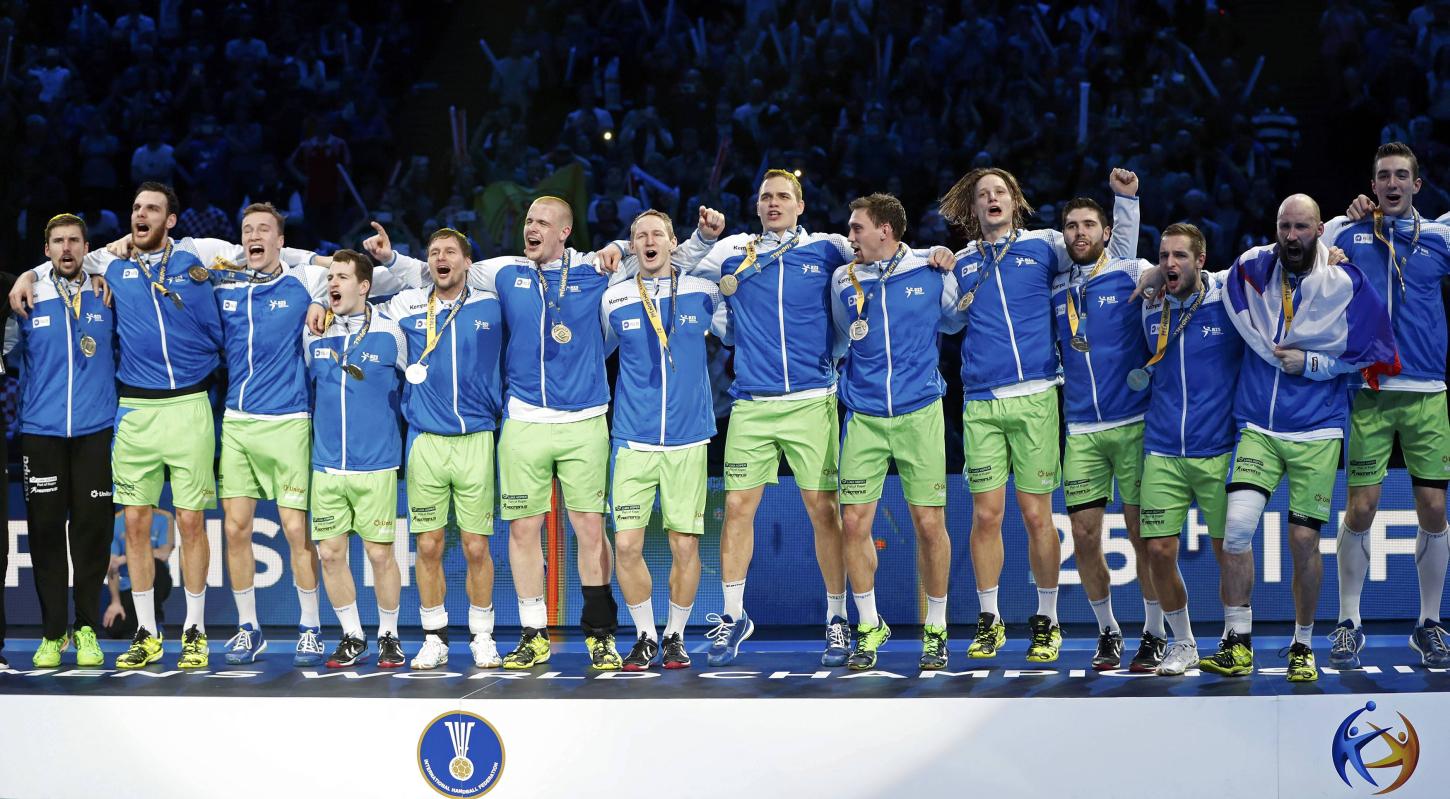
This is a historic medal, the first for Slovenia in a team sport at any World Championship, and the second-ever in handball. But the medal from Prais is worth more than the silver from the 2004 European Championship on home soil because this one was won after an epic showdown on neutral ground. And a victory over Slovenia’s southern neighbors is bound to be just a tad sweeter than, say, one over Norway.
Vujović not brought in for seventh place – but for a medal
When the manager Veselin Vujović took over the Slovenian national team in the spring of 2015, he faced a difficult challenge: how to take a team that had already attained good results at big tournaments and give it that additional ten or twenty percent that would ensure them a podium finish. In the process, he needed to make the team younger. And he succeeded in both tasks. His seemingly arrogant statement when he was named manager in 2015 – that "Vujović isn’t brought in for seventh or eighth place, but for a medal," quickly turned out to be true. In contrast to eternal doubters and pessimists, Vujović knew even then that the Slovenian players had what it took to become champions.
From "little Ribnica" to the big leagues
On the journey towards the podium, Vujović dismissed several fixtures of the national team (Sebastian Skube, Miha Žvižej, Dragan Gajić). Just before the championship, he left behind formerly irreplaceable players such as Uroš Zorman and Gorazd Škof, and bravely added new players to the team – including Darko Cingesar, Miha Zarabec, Blaž Janc, Urh Kastelic, Nik Henigman, and Jan Grebenc, who quickly proved that they were up to the challenge and turned into key players almost overnight. The two Ribnica natives, Henigman and Grebenc, played an especially notable role, since they managed a spectacular baptism under fire without much experience playing challenging club-level games. At first, Grebenc even stayed home but was called in to play in the elimination rounds in France and ended up leaving an indelible mark during his debut. He scored three goals against Croatia and made several outstanding passes.
Only the game against Spain was poor
It would be difficult to conclude that Slovenia did not have a winning state-of-mind even before Vujović’s arrival, but it’s clear that he charismatic Montenegrin, who had achieved the absolute maximum as a player, imbued the team with an additional measure of self-confidence, gave the players the audacity needed to reach for the top, and expanded the team’s tactical arsenal. In France, the Slovenian team drew attention with its attractive playing style, and had just one truly poor game: against Spain the group stage. In all other matches, they impressed with excellent performances. After all, the statistics – six wins, to losses, and a tie – speak for themselves.
Only the greatest win medals
The Slovenian team persevered a grueling "marathon" in grand style. It began with training in Zreče on December 22, and continued through the holidays until the team’s departure for France on January 5. At a time when most Slovenians were celebrating the holiday season, the players toiled way at their training sessions. They got their reward just slightly more than a month later. Only the greatest teams win medals at the championships. And Slovenian handball players have proved that they truly are great in the best possible way. They displayed outstanding technical skill, a strong team spirit, physical strength, and psychological stability even when the situation appeared futile, were among the characteristics that brought the team the biggest success Slovenian handball had ever seen – and one of the biggest success stories of Slovenian sports in general.
The future in bright
The championship in France showed that the competition in handball gets tougher every year. At least ten teams are in contention for medals, and they can’t rest on their laurels. France’s "golden generation" proved that they were justifiably seen as the favorites. The Norwegians were surprisingly good, while the Danes, the Olympic champions, and the Germans, the European champions, paid the price of playing in the third major event in a single year. With its third-place finish, the Slovenian team has now joined the all-time greats. The higher rating will require Slovenia to confirm its quality at future competitions, but given the quality if its players, who still have considerable room for improvement, the future of Slovenian handball in bright. Guys, Slovenia is proud of you.
Aleš Vozel; Translated by J. B.

































































